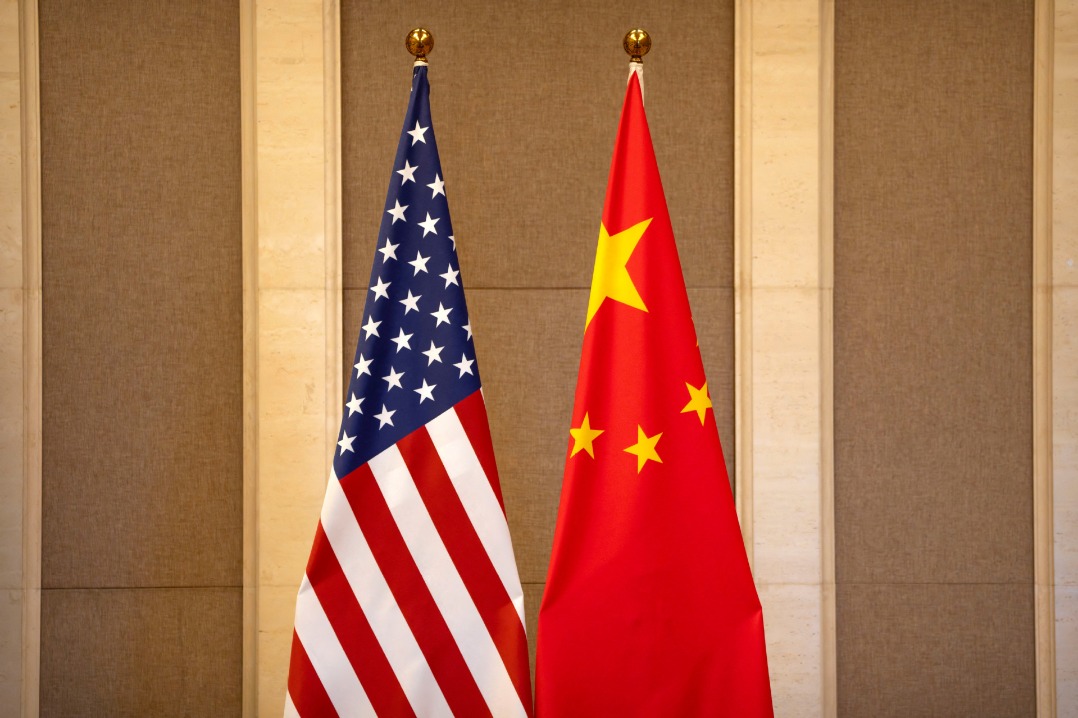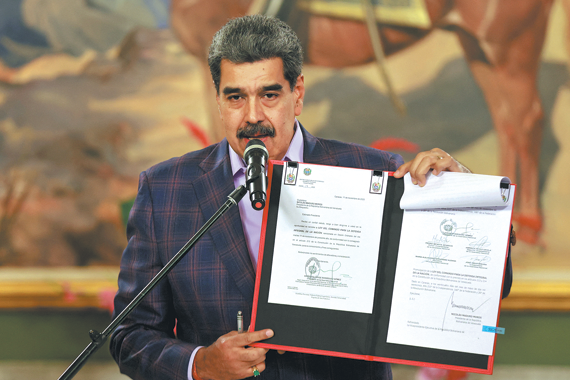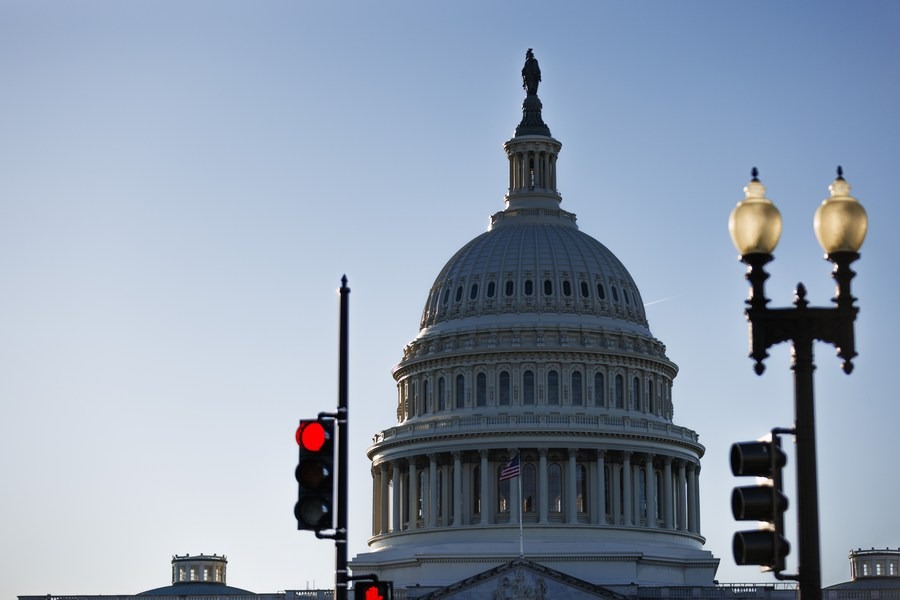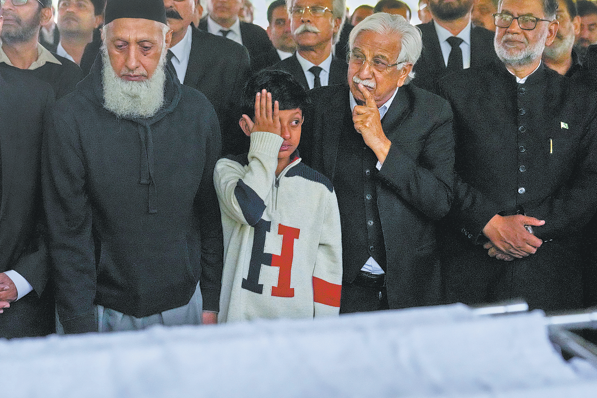Americans remain divided on gun control

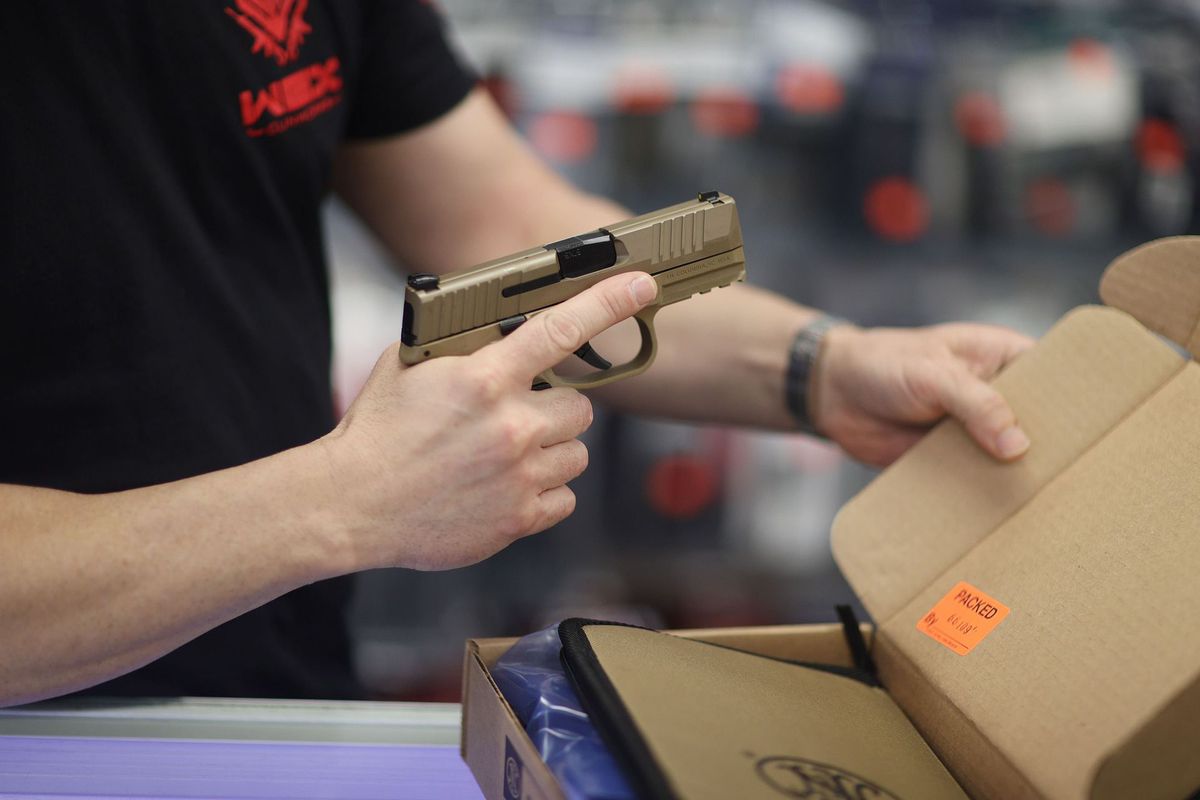
While the majority of Americans support stricter gun laws, a poll released Wednesday found that the number who do has fallen to the lowest level since 2014.
The Gallup poll found that 52 percent favor tougher gun laws, down 5 percent, while 35 percent say firearms laws should stay the same. Eleven percent favor less-strict laws.
Eighty-eight percent of gun owners cited crime deterrence as their reason for owning a gun, compared with two-thirds in the 2000 and 2005 surveys.
“The vast majority of gun owners now say they purchased a firearm to protect themselves against crime. While crime protection has been a commonly cited motivation for owning a gun in the past, it was nowhere near as dominant a reason as it is today, and not much more common than other reasons such as target shooting or hunting,” the Gallup release said.
In 2020, the US reported its highest homicide rate in 30 years, according to the FBI’s Uniform Crime Report.
The poll’s results were based on telephone interviews conducted Oct 1-19, with a random sample of 823 adults in all 50 states and Washington DC.
Gallup said that calls for tougher gun control have generally intensified after prominent mass shootings.
After the Parkland, Florida, school shooting in 2018, support for increased gun control rose to 67 percent, the highest level since 1993.
Last year, the decline in support for stricter gun laws was mostly due to a 14-point drop among Republicans, to 22 percent, their lowest point on record.
But this year’s decrease was driven by a 15-point decline among independents.
Democrats favoring stricter gun laws were at 91 percent in the new poll.
Since 1980, Gallup has measured public support for a handgun ban except for police and other authorized persons, and before that asked a similar question about “a law which would forbid the possession” of “pistols and revolvers”.
Support for banning citizen ownership of handguns peaked at 60 percent in 1959. It never rose to the majority level since and has been below 30 percent since 2008. The latest poll’s 19 percent is the all-time low.
Now the US Supreme Court may strike down New York state’s restrictive gun law. The top court will decide whether the law contradicts the Second Amendment right to “keep and bear arms”.
The law, known as the Sullivan Act, was enacted in 1911 following a spree of shootings in New York City. It is considered a “may issue” law, meaning the police have discretion to issue a concealed carry license, as opposed to a “shall issue” act, in which authorities must give a concealed-handgun license to anyone who meats specific criteria, such as a background check.
Over the years, people with handgun “carry permits” in New York City were perceived to be celebrities, those carrying large sums of money, retired law enforcement, even those with political connections, as the licenses from the NYPD are extremely difficult to come by.
New York City has seen a much-publicized rise in gun violence amid the COVID-19 pandemic, with television networks showing footage of shootouts on city streets. The guns used in those crimes though are rarely licensed and often are obtained out of state, in areas with far more lenient gun laws.
There were 1,324 shootings across the city’s five boroughs so far through October, compared with the 1,299 reported over the same 10 months last year, both numbers more than double the rate before the pandemic.
There were 382 gun arrests in October, bringing the number in 2021 to 3,808 — a 13.9 percent increase compared to 3,343 in the same 10 months in 2020.
Mayor-elect Eric Adams, who has said he will restore a controversial undercover NYPD anti-gun unit that was disbanded during Mayor Bill de Blasio’s second term, said of the court challenge that “we need fewer people carrying guns, not more”.
“If this law is eliminated in New York, police departments in New York City and across the state will have to immediately prepare for more shootings and need additional resources to prevent them,” said Adams, a former NYPD captain.
Rulings by the Supreme Court in 2008 and 2010 established a nationwide right to keep a gun at home for self-defense.
During two hours of arguments Nov 3, conservative justices, who are a 6-3 majority, suggested New York’s law and perhaps others like it in several other states are too stringent.
Chief Justice John Roberts asked why a person who wants to carry a gun in public for self-defense has to display a special need to do so.
“The idea that you need a license to exercise the right, I think, is unusual in the context of the Bill of Rights,” he said.
Justice Amy Coney Barrett told Paul Clement, attorney for the two gun owners who brought the case, that there’s a history of states outlawing guns in “sensitive places. Can’t we just say Times Square on New Year’s Eve is a sensitive place … people are on top of each other.”
The court will issue a ruling in June.
In most of the US, gun owners can legally carry their weapons in public. The Biden administration, which is urging the justices to uphold New York’s law, says California, Hawaii, Maryland, Massachusetts, New Jersey and Rhode Island all have similar laws that could be affected by the court’s decision.
Justice Samuel Alito asked whether New York’s law would allow a person to get a carry license if they get off work late and have to travel through a high-crime area to get to a subway or bus.
New York Solicitor General Barbara D. Underwood, arguing for the state, said such a person has no more specific need for a weapon than the general public does.
“But how is that consistent with the core right to self-defense, which is protected by the Second Amendment?” Alito asked. He said there are many people with illegal guns “walking around the streets” in New York, while “the ordinary, hard-working, law-abiding people I mentioned, no they can’t be armed?”
Justice Alito wondered why only “celebrities, state judges and retired police officers” should be able to carry concealed guns.
Underwood said that there’s no right “to be armed for all possible confrontations in all places”.
The challenge to the law eventually made it to the high court after two upstate New York men, Robert Nash and Brandon Koch, who applied for state permits to carry a concealed gun in public were denied. They and the New York State Rifle and Pistol Association sued in federal court.
Justice Stephen Breyer raised hypothetical situations in which even people of “good moral character”, including drunken sports fans at stadiums, could “end up dead”. He challenged Clement on what the court should do to avoid “a kind of gun-related chaos”.
The Gun Violence Archive has reported 39,417 violent gun deaths so far in the US in 2021. Of that total, 18,231 were homicides, murders, defensive use and accidents. Suicides were the highest cause, at 21,186.
The Associated Press contributed to this story.
















